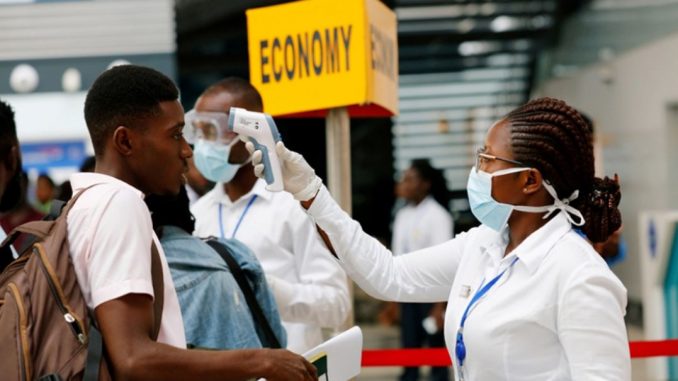

At the beginning of the year, just 4 months ago (which feels like a decade), I carefully assessed how Africa’s everyday life will change over the next decade. I focused on long-term trends that will take place over the years, and are expected to re-shape life across the continent. Back then, no one imagined that in such a short time we will witness a disruptive event such as the current crisis, affecting almost every area of our daily lives and re-shaping our future.
A crisis, however severe, does not create a new reality. It accelerates processes and trends that have taken place beneath the surface, prompting a rapid burst of social and economic changes, as well as breakthrough innovation and technologies. The Corona crisis is no different; It will not create a fresh new reality out of thin air but accelerate much of the same trends and processes that I mentioned in January, reshaping our lives sooner than we might think.
We all have to remember that until a vaccine or treatment is found, we will not live in a “post-Corona” era. Instead, we will learn to adjust our lives alongside the virus.
The extreme lockdown policy led by many governments will transform, stores, restaurants, sports, and cultural events will come back to life, and the social distancing, personal hygiene, and those not-very-fashionable blue masks will remain with us to keep the virus under control.
When looking forward to the day when, hopefully, humanity will find a vaccine or a cure for the virus, the reality is unlikely to return to what we once knew. Our world has already undergone a major transformation. How will Africa look like in the aftermath of the pandemic?
The lockdown will not disappear. Until an effective vaccine or remedy is found, the danger of a new outbreak will remain daunting. To prevent a large-scale outbreak, governments will declare local, temporary lockdowns, depending on the situation. An increase in the number of cases in a particular district will result in immediate quarantine, to “suffocate” the outbreak, and prevent infection on a national scale.
Extensive data collection. In order to optimally make such meaningful decisions in real-time, governments will need to rely on a lot of accurate real-time data. Today, in many African countries, the ability to collect large-scale data and make data-based decisions is very limited. That is likely to change: governments will have no choice but to promote national data collection plans and improve decision-making capabilities and mechanisms.
After years of the “sharing economy” being the world’s leading trend, we are likely to see the rise of a new global movement: the isolation economy. In the new reality, most people would prefer to minimize contact with foreigners, and staying home will be prioritized over going out to crowded places. This will increase the importance of home-use technologies, as well as the shipping and logistics companies and infrastructures.
The importance of national-scale electrification projects will increase. As mentioned, people are likely to stay home and avoid going out to crowded places, making home electricity more important than ever before. For rural families to be able to continue using cell phones, listening to the radio, and reading after dark, national-scale electrification projects for remote communities will become more important and urgent.
With lockdowns expected to become an integral part of our lives, remote education is expected to seize momentum and provide solutions to millions of children living in rural communities across Africa, providing the best solution regardless of the Coronavirus, With available technology and some government openness, education can be provided for every child, at any age, anywhere.
Remote medical services. No matter how severe the situation is, the interest of every government is to prevent people from coming to hospitals (where the chances of infection are high), in non-urgent medical situations. To achieve this goal, companies and governments must provide remote medical solutions, which will enable rural medical teams to diagnose and provide basic care to patients who do not need complex treatment, without sending them to the district hospitals.
The new economic reality will highlight quite a few challenges that will require innovative, breakthrough solutions (some of which are mentioned in the sections above). These challenges will present tremendous opportunities for local entrepreneurs and inventors who are well acquainted with the local reality, way of life, and needs. Combined with the high levels of the younger generation’s creativity, Africa can thrive on local innovation that will drive the entire economy towards the new era.
First published: The New Times